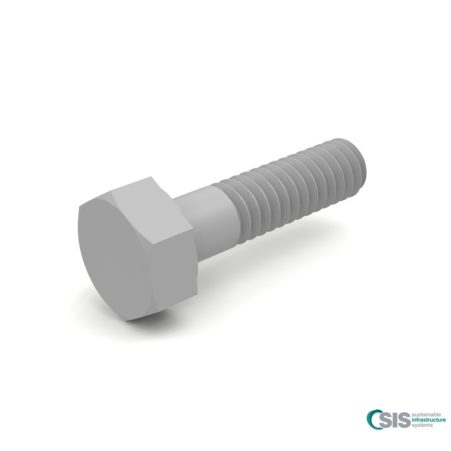Corrosion of metal fasteners like nuts and bolts is a persistent issue across Australia’s infrastructure, marine structures, transportation, utilities, mining, and other industries. Preventing corrosion often means costly specialty alloys or intensive maintenance regimes. However, fibre-reinforced polymer (FRP) composite alternatives provide innate corrosion resistance unmatched by metal fasteners.
Here’s why engineers and asset owners should consider switching to FRP bolts and nuts for optimal performance in corrosive environments.
- Exceptional Corrosion Resistance
FRP nuts and bolts are impervious to the corrosive effects of moisture, chemicals, and other environmental stressors. Unlike metal counterparts, they do not rust, ensuring longevity and reliability even in the harshest conditions.
- Chemical Inertness
FRP nuts and bolts exhibit remarkable chemical inertness in industries dealing with aggressive chemicals. This property prevents chemical reactions that could lead to deterioration, ensuring the integrity of the fasteners and the structures they support.
- Weight Advantage
The lightweight nature of FRP nuts and bolts not only simplifies installation but also contributes to reduced stress on structures. Additionally, reduced weight minimises the potential for mechanical damage and wear over time.
- Electrical Insulation
FRP’s non-conductive properties make these components ideal for industries with crucial electrical insulation. They eliminate the risk of electrical interactions, short circuits, and spark generation.
- Low Maintenance and Longevity
The corrosion resistance of FRP nuts and bolts translates to reduced maintenance requirements and longer service life. This equates to less downtime, lower maintenance costs, and improved operational efficiency.
- Customisation and Versatility
FRP fasteners can be tailored to specific requirements, allowing engineers to select the optimal combination of materials, dimensions, and properties for each application.
- Minimal Environmental Impact
Manufacturing FRP nuts and bolts generates fewer carbon emissions than traditional metal production methods. This aligns with Australia’s push for sustainability and responsible resource utilisation.
- Future Prospects and Evolution
While the advantages of FRP nuts and bolts are evident, ongoing research is focused on refining their manufacturing processes, expanding their applications, and optimising their cost-effectiveness. As the technology matures and becomes more widely accepted, we can expect to witness further advancements in corrosion-resistant solutions.
Conclusion
Corrosion’s impact on industrial operations and infrastructure cannot be underestimated. Introducing FRP nuts and bolts is a pivotal step in combating this pervasive challenge. It emerged as a reliable solution that empowers corrosion resilience and supports the nation’s drive toward innovation and sustainability.
If you are looking for the best FRP nuts and bolts supplier in Australia, then Sustainable Infrastructure Systems is for you. Our team specialises in the development of sustainable products by using a holistic project management approach to guarantee the best results. Connect with us by emailing [email protected] or by calling 1300 261 074.
